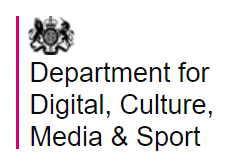 Department for Digital, Culture, Media & Sport (DCMS) has issued a web resource that ‘brings together research, guidance and estimates to help government and private organisations consider the value of culture and heritage capital’, parts of which feature on separate IHBC Newsblogs.
Department for Digital, Culture, Media & Sport (DCMS) has issued a web resource that ‘brings together research, guidance and estimates to help government and private organisations consider the value of culture and heritage capital’, parts of which feature on separate IHBC Newsblogs.
… case for investment in culture and heritage…
… report outlines the process used to collect and review the evidence…
DCMS writes:
A culture and heritage capital approach to policy and decision making considers the value of culture and heritage to society.
DCMS will publish research, data, guidance and tools to help organisations make a stronger case for investment in culture and heritage assets.
These aims are consistent with the HM Treasury Green Book principles.
You should check that you’re using the latest versions of these resources. DCMS and partner organisations update them regularly with new evidence.
DCMS reports
This document sets out DCMS’s approach to valuing the benefits provided by culture and heritage assets. Included within the document is a framework that will underpin the work of the Culture and Heritage Capital programme, demonstrating how culture and heritage assets create value to the public. You will also find information on the resources DCMS and partner organisations will provide over the coming years.
A rapid evidence assessment of the current state of literature valuing culture and heritage assets was commissioned to identify useful studies that align with best practice. The report outlines the process used to collect and review the evidence, an overview of the methods used in the literature to value culture and heritage assets and an assessment of the priority areas for future research. Alongside the report is an Evidence Bank of 171 values from culture and heritage valuation studies which can be used to support funding cases. For each study, the Evidence Bank includes the estimated monetary value, a RAG rating of its quality, and a link to the report amongst other useful information.
Sector-specific guidance and research
Research and guidance on Arts Council England’s ongoing Economic Value of Culture project, aimed at helping arts and cultural organisations better demonstrate their social and cultural impact in economic terms.
A case study on the public value of Britain on Film which provides evidence on the benefits of online access to film heritage.
A contingent valuation and benefit transfer study assessing the value of local historic high streets, libraries and town halls to residents in eight medium-sized cities in England.
Culture and Heritage Capital Advisory Board
The Culture and Heritage Capital Advisory Board advises DCMS on the use of economic techniques to form a culture and heritage capital approach.
Role of the group
The Culture and Heritage Capital Advisory Board includes experts from culture and heritage organisations and academia.
The board provides advice to help DCMS create publicly available statistics and guidance which articulate the value of the culture and heritage sectors. Valuation of benefits and costs plays an important role in understanding how the government should spend taxpayer’s money. It is therefore paramount that sector specific guidance is available.
The initial term of the board runs from 2020 to 2022. Lord Neil Mendoza, Commissioner for Cultural Recovery and Renewal, chairs the board which meets every six months.
Membership
Alongside DCMS officials the board consists of the following experts:
- Lord Mendoza (Chair), Commissioner for Cultural Recovery and Renewal at DCMS
- Duncan Wilson OBE, Chief Executive of Historic England
- Sir Laurie Magnus, Chairman of Historic England
- Darren Henley OBE, Chief Executive of Arts Council England
- Ros Kerslake OBE, Chief Executive of the National Lottery Heritage Fund
- René Olivieri, Chairman of the National Lottery Heritage Fund
- Sir Ian Blatchford, Chairman of the National Museum Directors’ Council
- Hasan Bakhshi MBE, Director of Creative Industries Policy and Evidence Centre at Nesta
- Geoffrey Crossick, Professor at the University of London
- Andrew Thompson, Formerly Executive Chair of AHRC, UKRI International Champion
- Ian Bateman, Professor at the University of Exeter
- May Cassar, Professor at University College London
- David Throsby AO, Professor at Macquarie University
- Susana Mourato, Professor at the London School of Economics
